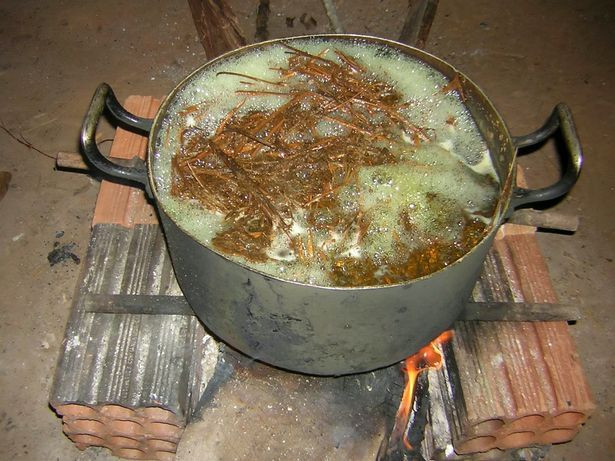How Safe Is Ayahuasca? Study Reveals Side-Effects Of The Traditional Psychedelic Substance
KEY POINTS
- Ayahuasca is a traditional psychedelic brew
- In a study, taking the psychoactive substance was associated with a high incidence of adverse effects
- The most commonly reported side-effects effects were vomiting and nausea, headache and abdominal pain
Ayahuasca is becoming popular due to its potential mental health benefits as well as spiritual and personal growth aspects. However, a new study has found that the traditional psychedelic substance can lead to adverse side effects.
The study, published in the journal PLOS Global Public Health, analyzed data from an online Global Ayahuasca survey carried out between 2017 and 2019 and found that the psychoactive substance was associated with a high incidence of adverse effects.
However, these effects were generally not severe.
Ayahuasca is a brew made by heating or boiling the leaves of the Psychotria viridis shrub with the stalks of the Banisteriopsis caapi vine, although other plants can be added as well, according to Healthline.
The psychedelic substance dimethyltryptamine (DMT) in Psychotria viridis combines with the MAO inhibitors in Banisteriopsis caapi to create a potent psychedelic brew that affects the central nervous system.
Traditionally used for spiritual and religious purposes by ancient Amazonian tribes, ayahuasca is still considered a sacred drink by some religious communities in Brazil and North America.
According to SciTechDaily, the Global Ayahuasca survey had data on more than 10,000 people from around the world with a minimum age of 18 and had used ayahuasca at least once. The data had information on people's age, physical and mental health, and history and context of ayahuasca use.
Following analysis, it was found that acute physical health adverse effects were reported by almost 70% of the participants. The most commonly reported side-effects effects were vomiting and nausea (68.2% of participants), headache (17.8%) and abdominal pain (12.8%). Despite the overwhelming occurrence of adverse effects, medical attention was needed in only 2.3% of participants.
Separately, 55% of the surveyed people reported adverse mental health effects. These included hallucinations (28.5%), feeling isolated (21.0%) and having nightmares or disturbing thoughts (19.2%). However, 87.6% of the participants who experienced mental health effects believed their experience wholly or partially added to a positive growth process.
Researchers found an emerging pattern that could determine who might be more vulnerable to these side effects. Factors such as old age, an underlying physical health condition or substance use disorder, lifetime ayahuasca use, and consumption of ayahuasca in a non-supervised setting predispose people to the chances of experiencing adverse physical events, the study found.
"Many are turning to ayahuasca due to disenchantment with conventional Western mental health treatments, however, the disruptive power of this traditional medicine should not be underestimated, commonly resulting in mental health or emotional challenges during assimilation," according to the study.
"While these are usually transitory and seen as part of a beneficial growth process, risks are greater for vulnerable individuals or when used in unsupportive contexts," the researchers added.

© Copyright IBTimes 2025. All rights reserved.





















